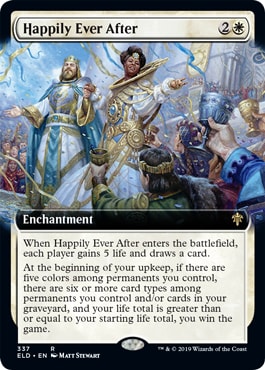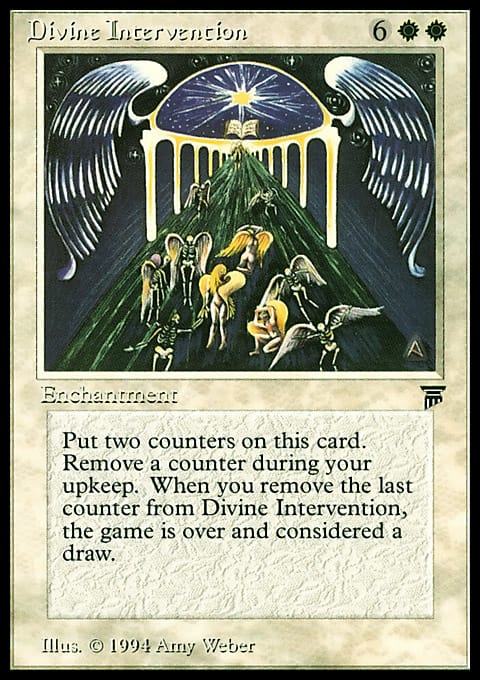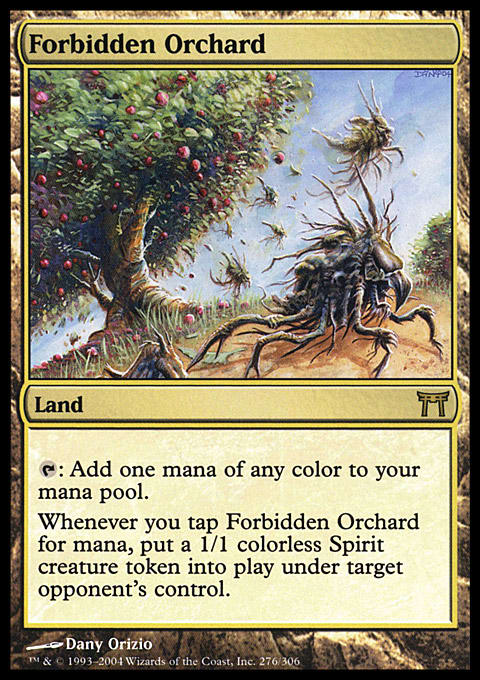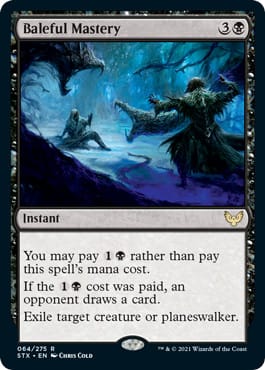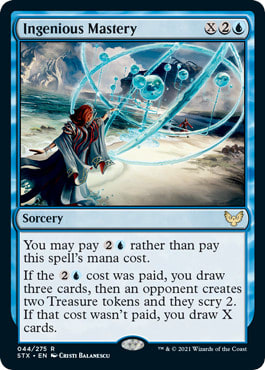If Magic has one major flaw it's that in every game someone has to lose. In multiplayer, even more people fall into the "L" column to crown a singular victor, or so you may have been led to believe. It doesn't have to be that way.
In casual games, you can decide who wins. You may have personal goals, such as gaining 100 life, or dealing forty damage in one swing. If you achieve what you set out to do, you are a winner, no matter what the final numbers say; in this way, Magic is much like life. After an epic Commander game where the players battle and thwart each other in a grand melee, every person can feel well satisfied regardless of who technically wins. But beyond that, what this article will discuss is how more than one player can win a single game of casual multiplayer.
Certainly, this can happen in two-headed-giant but also in free-for-all games between strangers. Once I fielded my Sliver Hiverlord deck only to spy a Sliver Overlord across the table. I struck down the opposing sliver legend with a Pyroblast, to keep control of my darling slivers, and my first thought was to blitz that opponent before they could recast their sliver-stealing commander. However, the board became so quickly ridiculous with doubly-powered slivers that I could only laugh. Rather than weaken our hatchlings, the other hive master and I devoured the two other players. Then instead of straining our brains recalculating increasingly crazy sliver stats, we acknowledged each other's power and declared allied victory.
Commander has some unique win conditions in Happily Ever After and Divine Intervention. Neither of those are what I'm referring to here. In the former, there's still a singular player celebrating, and in the latter one person controls the outcome of the game. There's no mutual agreement, and the result of a draw isn't necessarily what any other person at the table wanted. Because if what the remaining players desire is for the game to end, you don't need a card to tell you that. This is casual, and you can stop playing whenever you like.
If you and other players reach a board state where you are satisfied and willing to come to a decision together, more people can leave the table victorious. This strategy doubles or triples your chances of winning and may well increase net happiness in your playgroup. Given those huge upsides, it's well worth taking the idea seriously. How then can we make foes into friends?
Secret Rendezvous may be my favorite card from Strixhaven. The flavor text speaks to exactly what we're trying to do here, turn rivalries into harmony. Other players have expressed dissatisfaction with this as a source of White card draw, as it helps an opponent equally. But that's not an enemy you're giving three cards but a potential ally. Think of it as drawing six cards for your team, all for three mana. This can help another player to find a critical piece of disruption, to stop a combo from ending the game. Even if your "opponent" refuses to accept an allied victory at the end of the game, making it to the final two is an accomplishment unto itself. I give myself a mental half point whenever I survive to a multiplayer semifinals. But I'll award myself triple points every time I negotiate an allied victory. To gain those sweet, arbitrary points I'll build a relationship with another player.
Yes, I will pay four mana for my Planar Cleansing, with the upside of sparing two of my friend's permanents. Again, don't see this as a downside but a gesture of good faith. Often in multiplayer we seek out the most hurtful cards like Gray Merchant of Asphodel specifically because they damage all foes. That's not my goal. I'm interested on focusing fire on the scariest adversary while building alliances with cards like Forbidden Orchard and Varchild's War-Riders.
Admittedly, those 1/1's do more good in Oathbreaker, a multiplayer format where everyone starts at twenty life. In Commander we'll want something more bountiful.
Verdant Mastery is a next-level Cultivate which also ramps an ally. Now you may wonder how do you choose with whom to form an alliance? It could be any reason, really. The choice was obvious when the other player and I were both playing slivers. You could have grown to trust another player over the course of an evening, or you may simply like their choices in art for their basic lands. Whatever reason, be generous and deliberate with your gifts. Say what you respect about the other player and or their deck. Now, if I'm giving 1/1's I may ask the other person not to attack me with them. If they follow my reasonable request, then I would be happy to try giving them a gift of a free card.
Two mana isn't a great rate for a single-targeted removal spell in Commander, but it's a small price to pay to begin alliance building. Some people may disapprove of this sort of action, decrying politics, but Commander is a political board game that only incidentally uses Magic cards. I would go so far as to say a card's political impact is more important than its rules text, making guild gates better than duals, but that's another article. Even in cEDH, players will have to maneuver around their perceived threat. In the average game, politics are incredibly important. Take for example the ramifications of playing this artifact on turn one.
If a lone Sol Ring enters the battlefield on the first turn cycle, the best thing for the other players to do is form an alliance against this menace. The Sol Ring grants arch-enemy status, accelerating its master multiple turns ahead of the plucky peasants at the table. Individually, they are weak, but together they may have the answers to either kill the wielder of the Sol Ring outright or at least level the advantage with removal. Once the dust clears and the dark lord overthrown, the band of heroes have a decision to make. They can fight amongst themselves, or they can declare allied victory and go on to the next game.
The second option is chosen too rarely; it's rarely even considered. Players may shy away from political dealings in part because they fear inevitable betrayal. The reason alliances fall apart may be because we're stuck in the false paradigm that there can only be one winner. On a deeper level, we believe equity is limited and for one person to win, another must lose. In other games like Monopoly, we're taking resources from other players to secure our own success.
In the real world, politicians will often voice a similar false narrative. "We all would like to pay teachers more, but then we would have to take money from kids' lunches." That's a lie, and this whole scarcity mindset may be the result of late-stage capitalism. We could fund teachers and kids' lunches, by taxing the rich and corporations by seventy percent, back like we did during LBJ's presidency, when the USA actually had good infrastructure and good prospects for workers.
But I digress. The main thing you need to know is that you have the option to win with friends. See past the systemic narratives around you to look for better outcomes. That "opponent" on Fervent Mastery is more than that. They're a player like you, and they could be your next best friend.
What cards do you look forward to using to build alliances? Share them with a comment.














